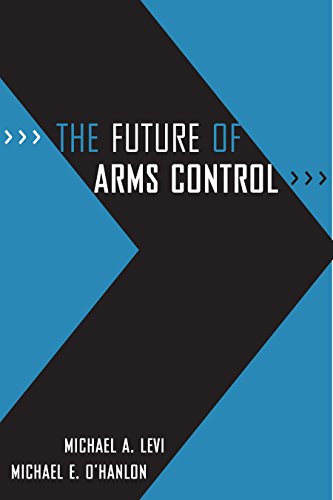
Synopsis
Arms control, for decades at the core of the foreign policy consensus, today is among the more contentious issues in American politics. It is pilloried and considered out of mode in many conservative quarters, while being viewed as nearly sacrosanct in many liberal circles. In this new book, Michael Levi and Michael O'Hanlon argue that neither the left nor the right has a correct view of the proper utility of arms control in the age of terror. Arms control in the traditional sense--lengthy treaties to limit nuclear and other military competitions among the great powers--is no longer particularly useful. Nor should arms control be pursued as a means to the end of constraining the power of nations or of promoting global government. It is still a critical tool, though, for controlling dangerous technologies, particularly those that, in the hands of hostile states or terrorist organizations, could cause massive death and destruction. Arms control and coercive action, including military force, must be integrated into an overall strategy for preventing proliferation, now more than ever before. Arms control should be used to gain earlier warning of illicit activities inside dangerous states, allowing the international community to take coercive action in a timely way. The authors propose three new criteria to guide future arms control efforts, designed to respond to today's geopolitical realities. Arms control must focus on the dangers of catastrophic technology, not so much in the hands of major powers as of small states and terrorist groups. Their criteria lead to a natural focus on nuclear and biological technologies. Much tougher measures to prevent countries from gaining nuclear weapons technoloty while purportedly complying with the Nuclear Non-Proliferation Treaty and procedures for controlling dangerous biological technologies will be most prominent in this framework, while lower priority is giben to efforts such as bilateral nuclear accords and most t
"synopsis" may belong to another edition of this title.
About the Author
Michael A. Levi is the David M. Rubenstein senior fellow for energy and the environment at the Council on Foreign Relations, where he is director of the CFR program on energy security and climate change. He is also adjunct assistant professor of international and public affairs at Columbia University. Michael E. O'Hanlon is a senior fellow in Foreign Policy Studies at the Brookings Institution, where he holds the Sydney Stein Jr. Chair. His recent books include Neither Star Wars nor Sanctuary (Brookings, 2004) and Crisis on the Korean Peninsula (McGraw Hill, 2003; with Mike Mochizuki).
"About this title" may belong to another edition of this title.
Other Popular Editions of the Same Title
Search results for The Future of Arms Control
The Future of Arms Control
Seller: BoundlessBookstore, Wallingford, United Kingdom
Condition: Good. VG condition book with dust jacket. DJ is clean, has fresh colours and has little wear to edges. Book has clean and bright contents. Seller Inventory # 9999-9993244062
Buy Used
Quantity: 1 available
The Future of Arms Control
Seller: Better World Books, Mishawaka, IN, U.S.A.
Condition: Good. Former library book; may include library markings. Used book that is in clean, average condition without any missing pages. Seller Inventory # GRP88550422
The Future of Arms Control
Seller: Phatpocket Limited, Waltham Abbey, HERTS, United Kingdom
Condition: Like New. Used - Like New. Book is new and unread but may have minor shelf wear. Your purchase helps support Sri Lankan Children's Charity 'The Rainbow Centre'. Our donations to The Rainbow Centre have helped provide an education and a safe haven to hundreds of children who live in appalling conditions. Seller Inventory # Z1-M-006-02103
Buy Used
Quantity: 1 available
The Future of Arms Control
Seller: librisaggi, SAN VITO ROMANO, Italy
rilegato. Condition: Buono (Good). 0. Copertina in mezza tela, con piatti in cartonato e banda in tela. Sovraccoperta plastificata con alette informative. Tagli e pagine integri. 0815764626 Buono (Good) . Book. Seller Inventory # BOOK-U-010617087
The Future of Arms Control
Seller: Mispah books, Redhill, SURRE, United Kingdom
Hardcover. Condition: Like New. Like New. book. Seller Inventory # ERICA75808157646266
Buy Used
Quantity: 1 available

